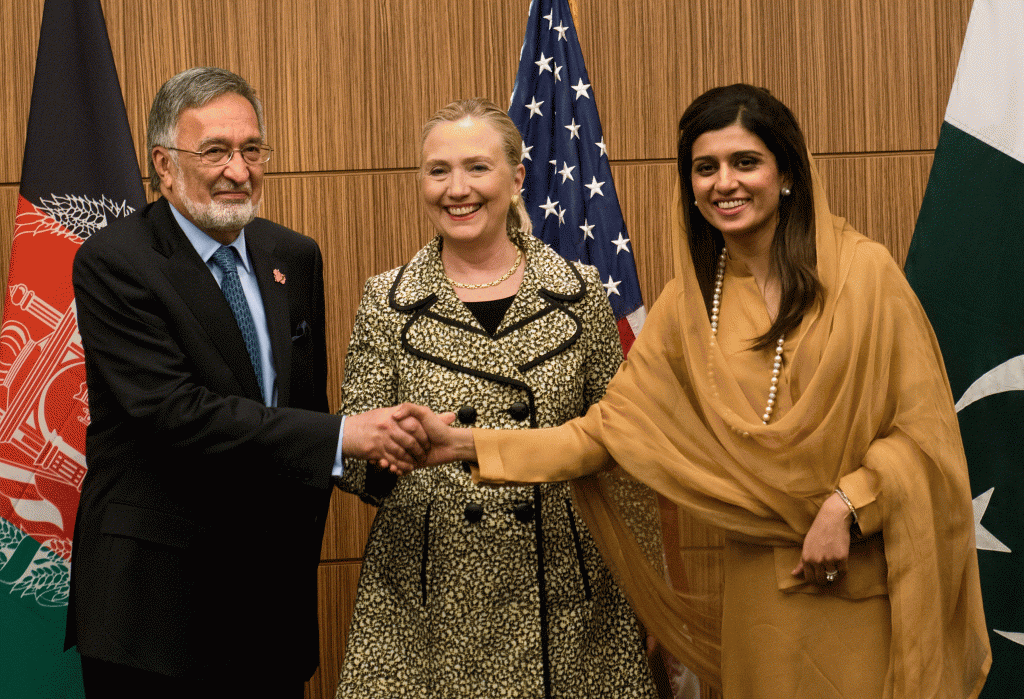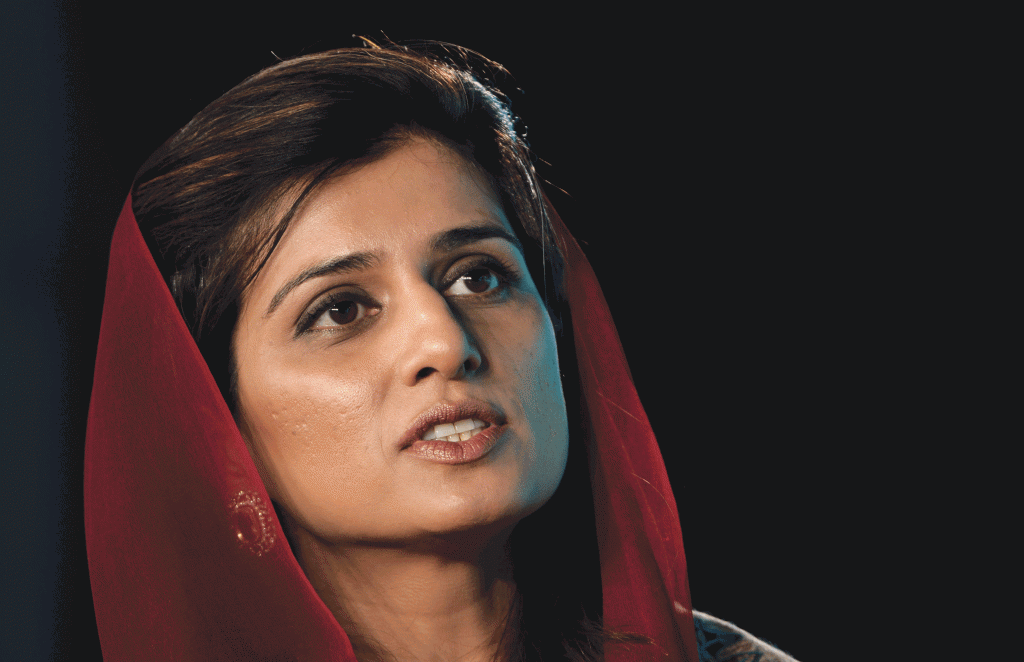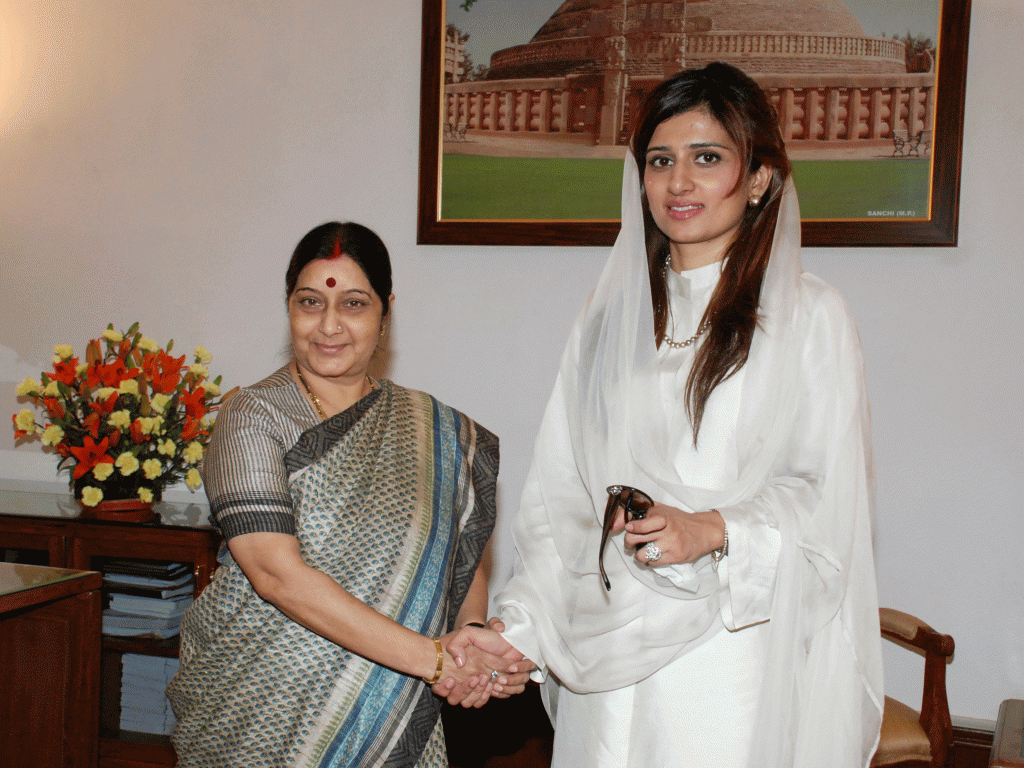Interview: Hina Rabbani Khar
By Kunwar Khuldune Shahid | Cover Story | Interview | Published 9 years ago
We’ve seen a shift in US policy towards India, the most recent example being its whole-hearted support for Indian membership of the Nuclear Suppliers Group (NSG). How should Pakistan tackle the changing dynamics with regard to the two?
I have had a serious problem with Pakistan’s relations with the rest of the world being measured through the Indian prism. And this is something that we tried to change during our time. This is an incorrect way of framing your foreign policy objectives, because if your objectives are anti another country, then you can only have a reactive foreign policy and never a proactive foreign policy, which means that you will never be achieving any positive objectives. You will only be side-stepping some negative repercussions of India’s relations with the world.
Does Pakistan expect too much of the US?
Both from the US and Pakistan sides, the relations have been need-based. Unfortunately, from our side, we have overblown and unrealistic expectations of our relations with the US. We’ve tried to woo them and we’ve tried to play along. We’ve drawn comfort from the fact that if the US is with us, we can achieve our objectives in Kashmir through the US — and this is something which hasn’t worked in the last 60 years. This idea has blown up in our face and yet we don’t learn any lessons. Right now, our relations with the US are very different as compared to what they were in the ’60s and ’70s, when they really needed us. And then of course, during the Soviet invasion of Afghanistan, when we became central to them. It has always been external events which have propounded Pakistan’s centrality to the US — not Pakistan’s own value.
So, personally, I believe Pakistan’s relationship with the US is flawed and ill-founded; it has not taken us anywhere and it is something we need to wheel ourselves away from. Because when it comes to economic assistance, there are very good studies that say Pakistan’s economy is not dependent on US assistance.
What about military assistance?
When it comes to military assistance, it’s not much different. I think this recent episode of the F-16s purchase should be a lesson for us that when you’re going to look elsewhere for your national defence requirements, then it’s the other [party’s] prerogative [to say yes or no]. It’s no longer the Pakistani parliament’s prerogative; it is, in fact, the US Congress’ prerogative. So these are [the realities]. They are visible to the naked eye and we need to change our foreign policy objectives [accordingly].
Right now, they’re not realistic at all. People come and give interesting statements; Chaudhary Nisar recently said that he is not answerable to the US Congress. When Pakistan asks the US to fund the F-16s, you become answerable to the people who are funding those F16s.
Has the importance of Pakistan’s relations with the US waned a bit of late?
Our bilateral ties with the US have always been overshadowed by the regional context, because of their presence in Afghanistan. Any discussions with the US are 75% about Afghanistan and 25% about bilateral relations. The reality is that President Obama has defined US ties with India as the ‘defining relations of the century.’ So this obsession of us Pakistanis to compare and contrast ourselves with India is ill-founded. India and US are on a very different plane. Our Foreign Office goes on and on about parity — the parity does not exist in the eyes of the world. It’s about time Pakistanis accepted that. We need to ensure that we make changes internally, within Pakistan, to raise Pakistan’s profile. Fancy statements won’t improve it. Currently, what is exceptionally important is Pakistan’s relations with its immediate neighbours.
 How do we address American concerns over the likes of the Haqqani network and the Afghan Taliban finding save havens in Pakistan?
How do we address American concerns over the likes of the Haqqani network and the Afghan Taliban finding save havens in Pakistan?
Why should we become the preservers, the promoters and the defendants of the Haqqani Network or the Afghan Taliban? What is our business in all of this? They are not Pakistanis. We always raise a voice when the Tehrik-e-Taliban Pakistan, who are Pakistani nationals, harm Pakistani nationals. So if people from other nationalities are going to use your territory against other countries and the latter have a problem with that I don’t think they are unjustified. Because the sword of sovereignty works both ways — it’s a two-way street. So if you want people to respect your sovereignty and you don’t want drone strikes in your territory, you have to make sure you respect your own sovereignty.
In order for Pakistan to change its foreign policy for the better, we have to gain control over our own territory.
What, in your view, are the factors souring relations between Pakistan and Afghanistan?
There are one or two fundamental problems that we’ve had. The basis of the problem with Afghanistan is that we have not been able to man the border and ensure that visas and passports are a requirement to cross this border. Sovereignty then becomes a sham, when you’re not respecting the territorial boundaries of your own country and you’re not providing protection to your own people.
All talk of tribal people being allowed to cross to facilitate their traditions… this used to happen in certain countries many centuries ago, but only for a limited period. We’re the only ones who have continued this tradition to the present day. And this is the root cause of all the allegations that are being hurled at Pakistan from across the border.
How do you view the scepticism regarding Afghan refugees?
Pakistan is housing three million plus Afghan refugees, but it does not have the wherewithal to sift out terror elements from among them, especially when we are not even manning the border. The recent clash in Torkham is not an ideal situation. What Pakistan must not compromise on is the manning of the border, so that we know the Afghans who are visiting Pakistan and vice versa. In case of an attack in Afghanistan, we can check who went there from Pakistan.
There is a huge trust deficit. The Afghans believe that Pakistan is using the Afghan Taliban, which I don’t believe is true. It would be suicidal for Pakistan to pursue a policy like that.
Of late, even President Ashraf Ghani has made some scathing remarks about Pakistan …
When President Ghani came in, he made considerable effort to normalise relations with Pakistan. He offered us major olive branches. He sent his military to be trained at the Pakistan Military Academy, which has been a long-standing demand of Pakistan. He also set the transit fee for the CASA-1000, which we had not been able to negotiate with Afghanistan for 10 years. I was really impressed by his gestures.
[In return] Ghani made a single demand of us — that if we hold sway over the Afghan Taliban, we should bring them to the negotiating table. I think we promised [to do so], but for reasons that I am not aware of, we were unable to deliver. Then there was an escalation in the attacks in Afghanistan, which made President Ghani come under pressure from assorted lobbies within Afghanistan, which resulted in his outburst in Parliament, where he said, “We don’t want to negotiate with them, we want to kill them.”
This is a very unfortunate turn of events, because President Ashraf Ghani is not a warlord who says one thing from the top of a mountain one day and something completely different the next day. He is the president of what we believe to be the sovereign state of Afghanistan.
But surely Pakistan would want to have a say in the Afghan Taliban’s future in the region…
It is Kabul’s prerogative and not that of Nawaz Sharif or Sartaj Aziz or Raheel Sharif or any Pakistani to decide as to what they want to do with the Afghan Taliban. If the Afghan state tells Pakistan that they don’t want us to assist them in the negotiations, we should desist from giving them sermons on how we know better. We do not know better. It is not our state, we should focus inwards. We have far too many problems of our own, which need solutions. The Tehreek-i-Taliban Pakistan is one of them. We should man the borders to ensure that the TTP is not able to use Afghan soil to attack Pakistan, but we should never become representatives of any faction that consists of Afghan nationals.
Do you agree that Pakistan always defines its relations with Afghanistan through the prism of India?
I think this is a self-fulfilling prophecy of ensuring that you will never have normal relations with Afghanistan. Look at what India is doing over there. India is building Parliament buildings, India is constructing dams — what are we doing over there?
When I was foreign minister I would always say — and I will say it now as well — the only way to build strategic depth, as people love to call it, in Afghanistan is through friendly relations. When you garner their trust, you will get depth. That’s the only way forward.
There are many people in Pakistan who believe that we can arm-twist Afghanistan. Let’s not forget, what happens in Kabul has a direct bearing on what happens in Pakistan. If Afghanistan is unstable, we will not be able to keep instability away from our 2,400 km-long border. It will permeate inside. If we continue to look at our relations with Afghanistan through the Indian lens, then we will continue doing what we’ve done for the past 10 years.
Nobody seems to be managing Pakistan’s foreign policy right now. Everybody is shooting from the hip. Different statements are being issued by different institutions. We, as Pakistanis, are supposed to try and make sense of the amalgamation of incoherent statements that are coming in.
If we were to ignore other regional and global factors and simply focus on our relations with India, where do you think most of the work needs to be done?
Whenever I’m asked what my biggest achievements as foreign minister were, I always say, they were the things most difficult to achieve. The PPP government was en route to trade normalisation with India. And to me, it was an extremely important achievement. We were changing course after 1965.
Quaid-e-Azam Muhammad Ali Jinnah maintained normal relations with India. He kept a residence in Mumbai. There were completely normal trading ties. And then the 1965 war happened, and normal trade relations with India ceased to exist. In 1995, India returned and gave Pakistan the MFN (Most Favoured Nation) status, which it gave to 180 other countries. We decided that no, we want to be different from the rest of the world and not give India the MFN in return.
In my view, if you want to normalise ties with India, it is imperative, in the long run, to take care of the territorial disputes that you have with India. The foremost is Kashmir, then you have Siachen and Sir Creek. How we resolve these issues is very important. Are we going to resolve them through war? Or, worse, a nuclear war? What are the tools available to us to resolve these disputes? I believe the negotiating table is the only tool.
But how does one negotiate, when there’s a complete lack of trust?
How will there be any trust if you don’t even interact with each other in terms of investment, in terms of trade, in terms of normalising relations? We thought of people-to-people interactions and we changed the visa regime. We normalised it. People above 60 years of age did not even need visas anymore. The bureaucracy always stepped in, but that visa regime had been simplified to quite an extent and we had hoped to go even further.
We gave India the MFN status — on paper at least. This was an example of a pro-active foreign policy. We paved the way for the current government to completely normalise trade ties with India, and I believe that is the way to go forward.
Ignoring the hawks and the jingoists, what about the traders’ concerns with regards to giving India the MFN status?
A lot of people say that if you give India the MFN status, India’s economy will gobble you up. What about China, which has a much bigger, and much more competitive economy than India? We are one of the few countries in the world that has the guts to have a Free Trade Agreement (FTA) with China. So if China hasn’t gobbled us up, India cannot. You can’t be fearful. You have to be sure-footed and confident about your product line and your economic strengths.
Unfortunately with India, what happens is every time there is a positive development, something worse follows it. The Pathankot attack is a very good example of that, followed by Mr Yadav being found in Balochistan. But these are all just incidents; they should not be policy-shifting events. You have to learn to live through them. Keep your direction correct. I have always said that we need to make our dialogue process with India uninterrupted and uninterruptible.
What about Indian concerns regarding the presence of jihadist factions in Pakistan?
Why should it be an Indian concern, or an American concern, or an Afghan concern? I believe it is Pakistan’s concern. If there are elements within Pakistan who are killing Pakistanis and are trying to create problems elsewhere, that should be the Pakistani state’s concern. It is diminishing our sovereignty, our strength, our security, before it does India’s. This is what I used to tell the Indians as well: nobody can tell me terrorism is an Indian subject, terrorism is a Pakistani subject. Our people are dying of terrorism. If it’s a concern with India, it’s twice as much our concern.
And Kashmir?
I have no doubts in my mind as to what is the way to achieve a resolution to the Kashmir issue, and it is dialogue. The dialogue has three partners according to Pakistan: the Kashmiri people, India and Pakistan. All three parties need to be on speaking terms with each other. We need to make sure that we are linked to the other two sides of this triangle.
Kunwar Khuldune Shahid is a journalist and writer based in Lahore.




